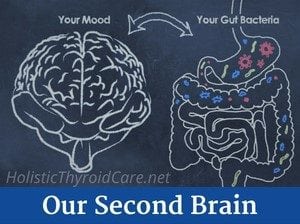Have you ever wondered why some women with Hashimoto’s seem to make progress along the path to healing and thriving again and you don’t? I have personally experienced many challenges since being diagnosed with three autoimmune diseases (Hashimoto’s, pernicious anemia and celiac disease) and know how hard it is to feel better and heal the gut, adrenals, prevent hair loss, improve energy, maintain a healthy weight and heal immune system…all while trying to keep your sanity!
In my work I see firsthand how many women also struggle to make it through each day and feel like they’ll never get better while others are successful in overcoming the obstacles of living with autoimmune thyroid disease. Why? How can this be the case especially if all the women are doing the same things…all the “right” things to heal?
When I studied human development and later went to nursing school, Maslow’s Hierarchy was often discussed. This is a theoretical structure for what drives human motivation based on the order of human needs as described by Abraham Maslow. I’ve always thought it to be fascinating. If you aren’t familiar with Maslow’s work, imagine a pyramid: basic physiological needs are the foundation, followed by safety and security needs at the next level, then love, affection and gregariousness needs, then prestige, competence, and power needs, and at the highest levels esthetic needs, the need for knowing, and then the ultimate level is self-actualization (Corsini, 2002).
What does all of this mean?
In addition, where I see most women getting stuck is in the third phase . . . when they have issues with connecting with others, e.g., friendships and relationships and they may have issues with things like love, trust, and forgiveness. This impacts overall health in ways you may have never imagined, because we always tend to think of these issues as “personal,” or we perceive them to not be associated with the physical body or disease. I’m not only talking about forgiveness, love and trust for and of others, I’m also talking about these things for yourself. Many women with autoimmune thyroid disease actually feel guilty for being sick.
I work with a lot of women and have seen situations where they’re taking the right meds, supplements, and following the correct diet and exercise regimens yet they don’t experience any progress whatsoever in their thyroid journey. Not always, but usually, it is these women who are stuck emotionally in negative thinking, victim thinking, there are issues with forgiveness, love and trust (of others and of self) and sometimes they don’t believe deep down that they can be healed. It doesn’t have to be this way.
When you begin to work on stumbling blocks to healing, amazing things happen! It certainly did for me too – I was stuck in the third phase for a long time until I learned the way out. I can show you too!
I want to empower you to believe. I want you to know that you can heal and it begins with the belief that you can be healed.
Also, as I discussed in my eBook, Hashimoto’s: Finding Joy in the Journey, (a companion workbook is on the way!) you need to know that in order to move forward in your healing journey, it is essential to address issues of love, trust, and forgiveness. All three are a choice you can make that will impact your emotional, physical, mental, and spiritual health.
To allow unresolved issues to manifest in your heart and mind only leads to a pattern of negative thinking and negative self-talk. This is not supportive to thyroid or overall health. Negative thinking and negative self-talk actually can become habitual and the body responds by producing physical symptoms such as pain, distress, hypertension, or other worrisome responses as well as stress hormones which tax the adrenals and damage the GI tract. When In I worked as a cardiac nurse, I often assessed my patients with an “Emotional/Mood Worksheet,” and most all of them had issues with forgiveness over things from the past that they were still holding on to.
Back to our friend Maslow. It’s easy to apply Maslow’s pyramid to your healing journey. I love it because it’s really just so common sense. You see, we all get caught up in ordering the right tests, taking the right supplements, seeing the right doctors, and other interventions. Take a step back and look at Maslow’s wisdom and allow it to be your guide. For example, you wouldn’t necessarily want to spend money on an expensive that isn’t covered by insurance if your basic physiological and safety needs aren’t met. Doing so might add more stress especially if you can’t afford it right now – and that’s OK. There are many things you can do to improve. I want you to also know that healing is a journey…not a destination. Commit to taking care of yourself for life.

“I cannot thank you enough for helping me learn more about Hashi’s. Until now it’s been so overwhelming with all the different information out there. I really am enjoying your class! Thanks a million for helping a sister like me take my knowledge to the next level, so I can be proactive with my condition!”- Mary S.
Remember that where the mind is, the body follows. It’s known as the essence of transference. The body responds to what your emotions, feelings, and thoughts communicate. The good news is that you can learn to reverse or improve distressing physical symptoms like low energy and fatigue, anxiety & panic attacks, joint & muscle pain, foggy brain and more simply by changing your thoughts and replacing them with positive thinking and working on forgiveness, trust, and love issues. This can take a fair amount of work and effort; however, the rewards are many and may save your sanity, allow room for healing and improve your quality of life. Trust me on this . . . I have lived through it. If I can do it, so can you! What are you waiting for?
Warmly,
References:
- Bassett, L. (2000). Attacking Anxiety & Depression: A Self-Help, Self-Awareness Program for Stress, Anxiety, & Depression, Oak Harbor: Midwest Center.
- Corsini, R (2002). The Dictionary of Psychology, New York: Brunner-Routledge.
Shannon wants to know: What’s really keeping you from healing?






